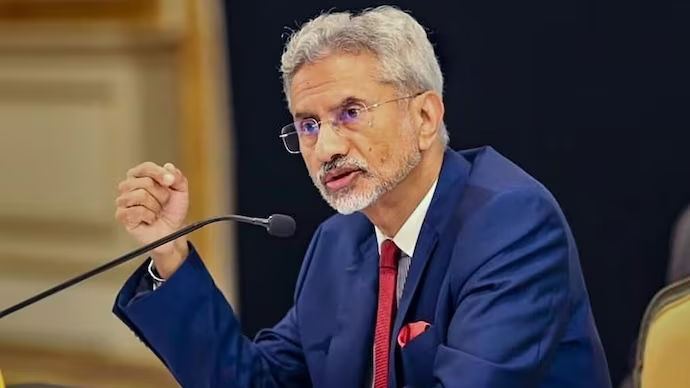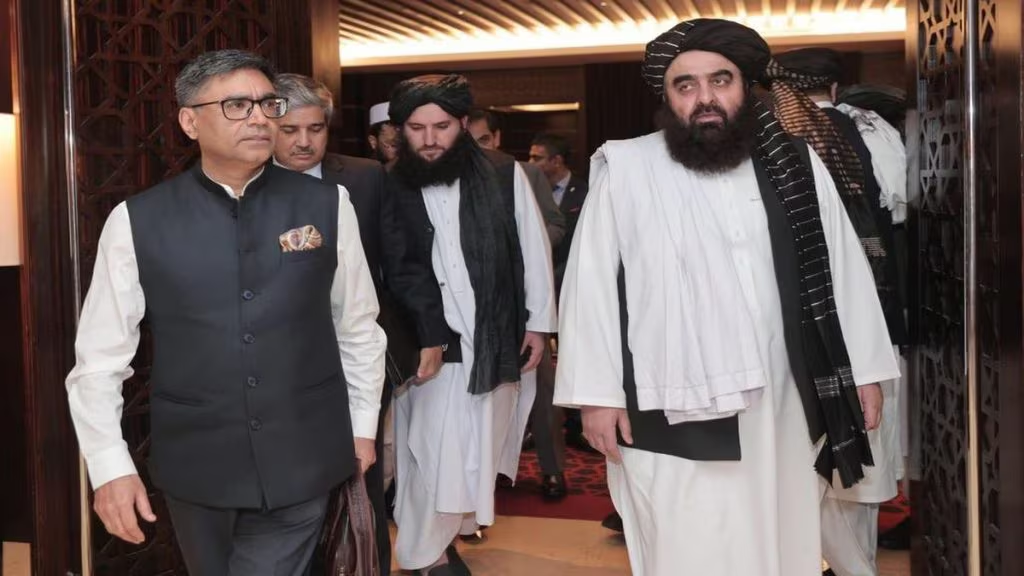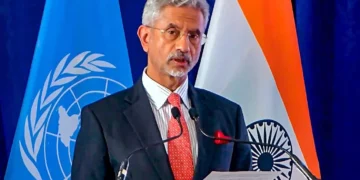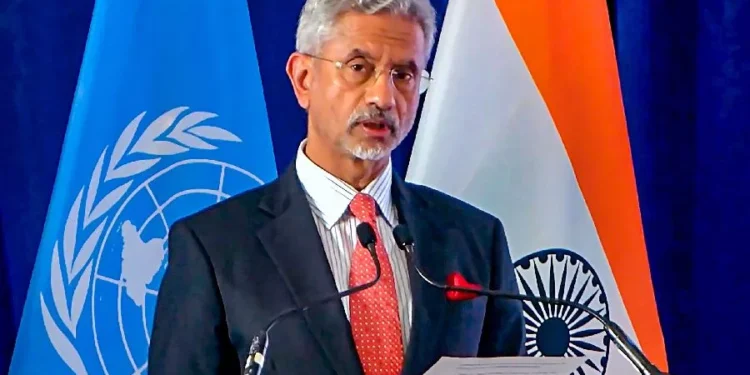Amid rising India-Pakistan tensions, the Taliban appears to be signaling a diplomatic shift—could Kabul be seeking warmer ties with New Delhi? Explore the evolving geopolitical dynamics.

“Conflicts often trigger a reset in diplomatic relations. As tensions between India and Pakistan edged toward open conflict, New Delhi’s relations with Ankara sharply deteriorated after Turkey voiced its support for Islamabad.
Now, it appears that a new diplomatic shift may be taking shape — this time between India and the Taliban-led government in Afghanistan. But why is this happening?
On Thursday, External Affairs Minister S. Jaishankar held a formal phone conversation with the Taliban’s acting Foreign Minister, Amir Khan Muttaqi. This exchange represents the first official political-level interaction between India and the Taliban since the group seized control of Kabul in August 2021.
Implications for India-Afghanistan Relations:
This conversation signifies a potential shift in India’s approach to engaging with the Taliban-led government. While India has not officially recognized the Taliban regime, this dialogue indicates a willingness to explore avenues for cooperation, focusing on humanitarian aid, trade, and regional stability. It also reflects India’s strategic interest in maintaining influence in Afghanistan amidst evolving geopolitical dynamics in South
On May 15, External Affairs Minister S. Jaishankar held a telephone conversation with Amir Khan Muttaqi, the Acting Foreign Minister of the Taliban-led administration in Afghanistan. The discussion is notable given that India has not yet formally recognized the Taliban government. The timing of the call is also significant, as it occurred shortly after the Taliban condemned the recent terror attack in Pahalgam, where 26 civilians were killed by militants linked to Pakistan.
“Had a meaningful conversation this evening with Acting Afghan Foreign Minister Mawlawi Amir Khan Muttaqi. Grateful for his strong condemnation of the recent terrorist attack in Pahalgam.
“He emphasized India’s longstanding friendship with the Afghan people and reaffirmed our continued support for their development needs. The discussion also focused on exploring avenues to further enhance bilateral cooperation.
Jaishankar also expressed appreciation for Muttaqi’s unequivocal dismissal of recent efforts to sow distrust between India and Afghanistan through unfounded and misleading narratives. His remarks appeared to address reports circulated by Pakistani media, which alleged that India had “hired” the Taliban to stage a “false flag” attack in Pahalgam.
Earlier, Pakistan’s military spokesperson, Lieutenant General Ahmed Sharif Chaudhry, accused India in a press conference of “firing missiles into Afghan territory and carrying out drone strikes inside Afghanistan.”
The Afghan side’s statement about the phone call notably omitted any mention of the Pahalgam attack or the recent military tensions between India and Pakistan. Instead, the focus was on strengthening Afghan-India relations. Hafiz Zia Ahmed, director of public communication at the Taliban’s Ministry of Foreign Affairs, said that Muttaqi requested Dr. Jaishankar to increase the issuance of visas to Afghan nationals, especially for those seeking medical treatment. The discussion also covered bilateral trade, the release and repatriation of Afghan prisoners held in Indian jails, and the development of the Chabahar Port in Iran.
Since the Taliban’s takeover of Afghanistan in 2021, New Delhi has remained cautious, stopping short of granting official recognition to the regime. Nonetheless, India has maintained engagement by holding discussions with senior Taliban diplomats, signaling a gradual warming of ties.
Last year, senior Indian diplomat JP Singh visited Afghanistan twice — first in March to meet with Muttaqi, and then again in November to hold talks with acting defence minister Mohammad Yaqub Mujahid.
This January, India’s Foreign Secretary Vikram Misri led a delegation of senior diplomats to Dubai for a significant meeting with Amir Khan Muttaqi of the Taliban government. The Taliban expressed a desire to deepen political and economic relations with India, recognizing it as an important regional and economic player. Discussions reportedly centered on boosting trade and making greater use of Iran’s Chabahar port, which India has been developing as an alternative to Pakistan’s Karachi and Gwadar ports.

At the time, Michael Kugelman from the Wilson Center, a U.S. think tank, told the BBC, “The fact that this assistance is coming from India—a country that has never had friendly relations with the Taliban—makes it all the more significant, and also represents a diplomatic win for the Taliban.
Table of Contents
The engagements didn’t end there. In the final week of April, Delhi dispatched M Anand Prakash, Joint Secretary overseeing Pakistan, Afghanistan, and Iran in the Ministry of External Affairs, to Kabul. This visit occurred amid escalating tensions between India and Pakistan following the Pahalgam terror attack. However, it remains unclear whether the attack was discussed during Prakash’s meetings with Muttaqi.
India’s decision to engage with the Taliban is driven by strategic interests. Experts highlight that by maintaining dialogue with the Taliban, India aims to counter Pakistan’s influence in the region. According to The Diplomat, this engagement could also help curb the movement of terrorist groups that pose a threat to India.
Ajay Bisaria, a former Indian envoy to Pakistan, notes that by engaging with the Taliban, New Delhi aims to negotiate a deal whereby it secures a guarantee that Afghan territory will not be used for any anti-India activities, in exchange for allowing limited diplomatic engagement and continued humanitarian aid.
READ ALSO…..Mark Carney’s Tax Reliefs: How Will They Impact Indians Living in Canada?















 Categories
Categories









